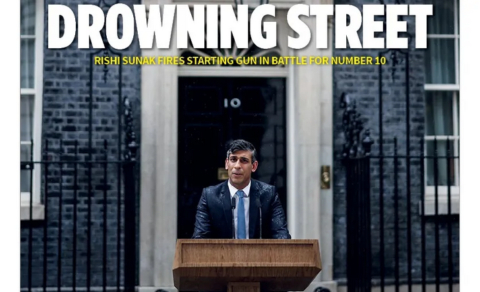Forgotten Weapons
Published Apr 15, 2024While the US never adopted a significant variation of the M1 Garand (excluding sniper models), testing continued on new iterations and features throughout the war. By the time the war ended, the US military had some specific ideas about what it wanted in a new service rifle. That being, something lighter, capable of automatic fire, and to have one single platform replace the M1 Carbine, M3A1 Grease Gun, M1 Garand, and M1918A2 BAR. New rifles to meet these requirements were developed by Springfield, Remington, and Winchester, ultimately competing against the FN FAL for US service use. The Springfield T44E4 won out (barely) and was adopted on May 1, 1957 as the M14 rifle.
Production of the M14 was plagued by problems, largely due to quality control lapses. Early in production there were heat treatment problems that led to sheared looking lugs and broken receivers. Once those were addressed, the main problem became one of accuracy, with a shocking number of M14s failing to meet the 5.6 MOA minimum accuracy standard. Ultimately production ended in 1963 with 1.38 million M14s produced, and the M16 took over as the new American service rifle.
(more…)
July 25, 2024
M14: America’s Worst Service Rifle – What Went Wrong?
QotD: Why devolution has not worked in the United Kingdom
Reading this Samizdata quote of the day got me thinking about why devolution in the UK has been a general disappointment and source of endless annoyance.
I remember when arguments were originally made for devolution, commentators would claim that devolution would work in the same way that the federal structure of the US works, or, for that matter, how the cantonal system works in Switzerland. By which they meant that if a state such as Zug in Switzerland or Wisconsin in the US tried a specific policy (encouraging cryptos, or enacting Workfare, to take two actual examples), that the perceived success or failure of these policies would be studied by other cantons and states. Hence the idea that devolution allows a sort of “laboratory experiment” of policy to take place. It creates a virtuous kind of competition. That’s the theory.
What seems to have happened is that since devolution in the UK, Scotland, Wales and to some extent, Northern Ireland, have competed with England in who can be the most statist, authoritarian and in general, be the biggest set of fools. Whether it is 20 mph speed limits spreading to many places and harsh lockdowns (Wales) or minimum pricing on booze and “snitching” on your own family for views about gender (Scotland), the Celtic fringe appears to be more interested in being more oppressive, rather than less. I cannot think of a single issue in which the devolved governments of the UK have been more liberal, and more respectful, of liberty under the rule of law. (Feel free to suggest where I am mistaken.)
One possible problem is that because the UK’s overall government holds considerable budgetary power, the devolved bits of the UK don’t face the consequences of feckless policy to the extent necessary to improve behaviour.
Even so, I don’t entirely know why the Scots and Welsh have taken this turn and I resist the temptation to engage in armchair culture guessing about why they tend to be more collectivist at present. It was not always thus. Wales has been a bastion of a kind of liberalism, fused to a certain degree with non-conformity in religion, and Scotland had both the non-conformist thing, and the whole “enlightment” (Smith, Hume, Ferguson, etc) element. At some point, however, that appears to have stopped. Wales became a hotbed of socialism in the 20th century, in part due to the rise of organised labour in heavy industry, and then the whole folklore – much of it sentimental bullshit – about the great achievements in healthcare of Nye Bevan. Scotland had its version of this, plus the resentments about Mrs Thatcher and the decline of Scotland as a manufacturing power.
[…]
Maybe the “test lab” force of devolution will play a part in demonstrating that, as and when we get a Labour government for the whole of the UK, it will be a shitshow on a scale to put what has happened in the Celtic parts of the UK in the shade.
Johnathan Pearce, “Why has devolution not worked in a liberal direction?”, Samizdata, 2024-04-23.
July 24, 2024
Tiberius Caesar, the second emperor
In The Critic, Jaspreet Singh Boparai reviews Iron Imperator: Roman Grand Strategy Under Tiberius by Iskander Rehman:
Tiberius was 55 years old when he became the second Roman emperor. He ruled from AD 14 to 37, spending most of the second half of his reign on the island of Capri, where he never lost his grip on power despite being over 130 miles from Rome.
Like most bureaucratic administrators, he was far from popular. Tacitus (AD 56–120), the greatest of all Roman historians, presents Tiberius as paranoid, ruthlessly cruel, and pathologically unable to say what he meant. The imperial biographer Suetonius (69–122) completes the Tacitean picture of a dour, charmless pervert, miserable even in his increasingly sordid pleasures.
Not all writers are quite so hostile to Tiberius: since the Enlightenment he has won qualified praise from thinkers including Montesquieu and Voltaire, who have often been willing to overlook at least some of his vices. The great Russian poet Alexander Pushkin wrote in 1825: “The more I read Tacitus, the more I come to like Tiberius. He was one of the greatest administrative minds of antiquity.”
Of course, Pushkin could take revisionism to contrarian extremes, as when he said of a notorious assassination: “If murder can be guiltless in an autocratic state when it is for reasons of political necessity, then Tiberius was justified”.
Iskander Rehman doesn’t go quite so far as Pushkin; yet he does want us to look past all the gossip and scandals, and see what we can learn in practical terms from this controversial emperor. Tiberius was not a conqueror; his main task was to consolidate his predecessor’s achievements and establish stability throughout the empire.
He was faced with the question of how you govern a massive, unwieldy state as an absolute monarch without the benefit of personal charisma, reliable subordinates or the momentum of conquest. Rehman focuses on foreign policy, military affairs and imperial management in general, and concludes that, whatever else might have been wrong with Tiberius, at least he understood grand strategy, international relations, and how to handle the Roman economy.
I must admit that my impression of Tiberius was largely informed by my childhood encounter with Robert Graves’ excellent novels I, Claudius and Claudius The God, which definitely drew the character details of Tiberius in the novels from Tacitus and Suetonius. But Graves also pointed out that whatever personal flaws were displayed in his private life, for the vast majority of the empire he was a competent successor to the great god Augustus.
The Korean War – The Allied Cluster f**k at Taejon – Week 005 – July 23, 1950
The Korean War by Indy Neidell
Published 23 Jul 2024Taejon falls this week to the advancing North Korean steamroller, but the fight there is complete chaos that even sees the top American General fleeing into the local hills. However, two divisions of American reinforcements have arrived and perhaps they can turn the tide. The US also has decided to massively increase its defense spending and conscript tens of thousands of men, which may well help to do that.
(more…)
Investigate one assassination attempt, reveal the truth about two earlier assassinations?
I have to admit that I’m skeptical about this, as conspiracies tend to unravel the larger they get (hence the old joke about three being able to keep a secret, if two of them are dead), and the tradition of deathbed confessions has had six decades to reveal itself. However, Benjamin Dichter thinks that a full, honest investigation into the attempt on Donald Trump’s life in Butler, PA would also yield historical dividends on the assassinations of JFK and RFK in the 1960s:
On July 13, 2024, both tragedy and an iconic photograph in American political history emerged from the attempted assassination of the 45th president. Even the harshest critics of Donald J. Trump among the legacy media were forced to acknowledge the moment, which many believe has cemented President Trump as an American icon. This failed assassination has become one of the most pivotal moments in American history, akin to tragedies such as 9/11, Pearl Harbor, and the attempted assassination of Reagan. It is rapidly emerging as a unifying moment for many Americans, signaling that the media’s rhetoric and repeated attempts to label Trump as a dictator, a neo-Nazi, and other unsubstantiated vitriolic claims have gone too far.
Donald Trump, surrounded by Secret Service agents, raises his fist after an attempt on his life during a campaign speech in Butler, PA on 13 July, 2024. One spectator was killed and two others were reported to be in critical condition. The shooter was killed by Pennsylvania State Troopers, according to reports in the succeeding hours.
As a Canadian who has spent much of my life traveling to the US, I have always sensed an underlying, unresolved collective emotional trauma that lingers like morning fog. This trauma stems from the assassinations of President John F. Kennedy and his brother Robert F. Kennedy — both murders believed by the majority of Americans to remain unsolved. More on that in a bit.
A friend of mine, working with the Department of Defense in the domain of security readiness for the US government, has told me the level of incompetence and fumbling of security obligations during Trump’s speech in Butler, PA, was inconceivable. He is not one to be hyperbolic, and we are both believers in Hanlon’s Razor. However, after his long career in the military and then at the Department of Defense, where he learned there is no shortage of incompetence due to government bureaucracy, he insists that the most basic protocols were violated in this case.
How is it possible that anyone could get within 125 yards of a former President and current candidate with a rifle? Not just a small pistol hidden in a pocket, but a large AR-15 platform rifle. “The idea that this could happen uncoordinated is absurd” he said. Even the legacy media is unable to spin their usual ridiculous deflections, which often appear like a frenzy of spawning sharks whenever President Trump is in their midst.
The gravity of this situation has changed everything and heralds a dawn of opportunity for America. For Trump, it is a chance to show the world how the gears of the machine turn. How things really work behind the scene. He is presented with a massive opportunity to seek retribution on behalf of the American people, who are still grappling with unresolved issues from past traumas.
Unlike the tragic assassinations of JFK and Robert F. Kennedy, Trump survived and will likely return to office. Also caught in the chaos were innocent bystanders, notably Corey Comperatore, who sacrificed himself by shielding his family from gunfire, along with two other victims whose injuries were not life-threatening. The innocent victims and their families who will vote in November, make this a situation that hits home with many Americans regardless of party affiliation.
Chieftain V T-62 | Operation Nasr, Iran – Iraq War, 1981
The Tank Museum
Published Apr 13, 2024Two tanks designed to fight each other in Northern Europe would face each other during the Iran-Iraq war in 1981. On one side, the British built Chieftain MBT. On the other, the Soviet-built T-62.
In this video, we examine what happened during Operation Nasr to find out which tank came out on top …
00:00 | Intro
01:19 | Meet the Tanks
02:15 | The T-62
03:26 | The Chieftain
06:21 | From Paper to the Battlefield
09:25 | The Outcome and Findings
(more…)
QotD: The “strategic defensive” approach to the attrition battles of WW1
Well, perhaps you say, that is a bit simplistic; what if we go on a strategic defensive – adopting a strategy of attrition? Note we are fairly far now from the idea that the easy solution to trench warfare was “don’t attack”, but this is the first time we reach what appears on its face to be a workable strategy: accept that this is a pure war of attrition and thus attempt to win the attrition.
And here is where I, the frustrated historian, let out the primal cry: “They did that! Those ‘idiot’ generals you were bashing on a moment ago did exactly this thing, they did it in 1916 and it didn’t work.”
As Robert Doughty (op. cit.) notes quite effectively, after the desperate search in 1915 for ways either around the trench stalemate or through it (either way trying to restore a war of maneuver), Joseph Joffre, French chief of the army staff, settled on a strategic plan coordinating British, Italian, French and Russian actions designed around a strategy of “rupture” by which what was meant was that if all of the allies focused on attrition in each of their various theaters, eventually one theater would break for lack of resources (that’s the rupture). He was pretty damn explicit about this, writing about the war as a “struggle of attrition” in May, 1915 and setting a plan of action in December of 1915 to “do everything they can to attrit the adversary”.
Joffre’s plan did not go perfectly (the German offensive at Verdun upset the time-tables) but it did, in fact mean lower French losses in 1916 than in 1915 or 1914 and more severe German losses. Meanwhile, the German commander, Erich von Falkenhayn would at least subsequently claim to have been trying to do the same thing: achieve favorable casualty ratios in a war of attrition, with his set piece being the Battle of Verdun, designed to draw the French into bloody and useless repeated counter-attacks on ground that favored the Germans (there remains a lot of argument and uncertainty as to if that attritional strategy was the original plan, or merely Falkenhayn’s excuse for the failure to achieve meaningful strategic objectives at Verdun). In the end, the Verdun strategy, if that was the strategy, failed because while the Germans could get their favorable ratio on the attack, it slipped away from them in the inevitable French counter-attacks.
But as Clausewitz reminds us (drink!) will – both political and popular – is a factor in war too (indeed, it is one of the factors as part of the Clausewitzian trinity!). Both Joffre and Falkenhayn had to an extent seen that the war was going to run until one side ran out of soldiers and material and aimed to win that long, gruelling war; for which they were both promptly fired! The solution to the war which said that all one needed to do was sacrifice a few more million soldiers and wait 2, or perhaps 3 or maybe even 4 more years for the enemy to run out first was unacceptable to either the political leaders or the public. 1917 came around and both sides entrusted the war to generals who claimed to be able to produce victories faster than that: to Robert Nivelle and Erich Ludendorff, with their plans of bold offensives.
And to be clear, from a pure perspective of “how do we win the war” that political calculation is not entirely wrong. Going to the public, asking them to send their sons to fight, to endure more rationing, more shortages, more long casualty lists with the explanation that you had no plans to win the war beyond running Germany out of sons slightly faster than you ran France out of sons would have led to the collapse of public morale (and subsequent defeat). Telling your army that would hardly be good for their morale either (the French army would mutiny in 1917 in any event). Remember that in each battle, casualties were high on both sides so there was no avoiding that adopting an attrition strategy towards the enemy meant also accepting that same attrition on your own troops.
And, as we’ve discussed endlessly, morale matters in war! “Wait for the British blockade to win the war by starving millions of central Europeans to death” was probably, in a cold calculus, the best strategy (after the true winning strategy of “don’t have a World War I”), but it was also, from a political perspective, an unworkable one. And a strategy which is the best except for being politically unworkable is not the best because generals must operate in the real world, not in a war game where they may cheerfully disregard questions of will. In short, both sides attempted a strategy of pure attrition on the Western Front and in both cases, the strategy exhausted political will years before it could have borne fruit.
And so none of these easy solutions work; in most cases (except for “recruit a lost Greek demi-god”) they were actually tried and failed either due to the dynamics (or perhaps, more truthfully, the statics) of trench warfare or because they proved impossible implement from a morale-and-politics perspective, violating the fundamental human need to see an end to the war that didn’t involve getting nearly everyone killed first.
Bret Devereaux, “Collections: No Man’s Land, Part I: The Trench Stalemate”, A Collection of Unmitigated Pedantry, 2021-09-17.
July 23, 2024
Claim – “Everybody wants Gaza’s gas”
Tim Worstall explains why the popular idea that it’s demand for the natural gas reserves that sit under Palestine that is driving much of the situation in the Middle East is utter codswallop:

“Oil Platform in the Santa Barbara Channel, California” by Ken Lund is licensed under CC BY-SA 2.0 .
So we’ve a big thing about how all this fighting in Gaza is really about fossil fuels. @JamesMelville seems to think it’s true:
“Everybody wants Gaza’s gas.”
Oil and gas reserves – that’s the real proxy war in the Middle East.
This video provides a really succinct summary of the situation.
This “really succinct” summary includes the idea that the invasion of Iraq was all about access to that country’s oil. Which is very silly indeed. Before the war people paid Iraq for the oil. During the war people paid Iraq for the oil. After the war people are paying Iraq for the oil. The war hasn’t changed Iraq’s oil price — the global oil price has changed it, but not the war — and so the effect of the war upon access to Iraq’s oil has been, well, it’s been zero.
No, it’s not possible to then go off and say that Iraq wouldn’t sell to Americans and that’s why or anything like that. The US didn’t buy much Middle East oil anyway — mainly West African instead. But more than that, this is idiocy about how commodity markets work.
This is something we can test with a more recent example. So, there are sanctions on Russian oil these days over Ukraine. Western Europe, the US, doesn’t buy Russian oil. Russia is still exporting about what it used to. Because it’s a commodity, oil is.
What’s happening is that the Russian oil that used to come to Europe now goes to — say — India. And the Far East, or Middle East, whatever, oil that used to go to India now comes to Europe (the US is now a net exporter itself). Because that’s what happens with commodities. The very name, commodity, means they are substitutable. So, if one particular source cannot sell to one particular user then there’s a bit of a reshuffle. The same oil gets produced, the same oil gets consumed, it’s just the consumption has been moved around a bit and is now by different people. The net effect of sanctions on Russian oil has been, more or less, to increase the profits of those who run oil tankers. Ho Hum.
We’re also treated to the revelation that the US wants everyone to use liquefied natural gas because the US is the big exporter of LNG (well, it’s one). Therefore the US insists that Israel must develop the LNG fields off Gaza. Which is insane. If you’re an exporter you don’t want to start insisting on the start up of your own competition. The US demanding that the LNG not be produced at all would make logical sense but that’s not how conspirazoid ignorance works, is it? It has to be both a conspiracy and also a ludicrous one.
And a third claim. That this natural gas off Gaza is really worth $500 billion. That’s half a trillion dollars. We’ve looked at this value of gas off Gaza claim before and it’s tittery. $4 billion (that’s four billion, not five hundred billion) might be a reasonable claim and that’s just not enough to go to war over.
Trudeau announced new submarines for the RCN … don’t assume he’s really serious
At The Hub, J.L. Grantastein explains why Trudeau’s hasty commitment under pressure from our exasperated NATO allies is not likely to be met, and almost certainly not to be met fully:

HMCS Chicoutimi escorts Peoples Liberation Army (Navy) ships visiting Victoria on behalf of the Chinese military, 13 December 2016.
Photo: Cpl Carbe Orellana, MARPAC Imaging Services, ET2016-0468-03 ©2016 DND-MDN CANADA
Canada has no capacity to construct submarines, and the country’s shipyards are struggling to build destroyers, icebreakers, and supply ships. This means that submarines will need to be purchased from European or Asian shipyards with experience in building them. (There will be a certain irony if the RCN, having fought against U-boats in two world wars, ends up with German submarines.)
As of Trudeau’s announcement, let us be clear, no submarine design has been selected, and naval officers are said only to have been engaged in seeking the best models for the RCN. Given Canada’s broken defence procurement system, this is unlikely to be a quick process. The RCN may soon know what it wants but the bean counters will rule as they always do, and orders most likely will not be placed for at least three to five years.
Few expect that the Liberals will be in power in 2027, and if the Conservatives do form the government, it is worth noting that Pierre Poilievre has refused to commit to a date for Canada to meet its 2 percent pledge. New subs may not be an idea the Tories will accept.
If an old or new government does decide to continue with a submarine program, it is certain that a new conventional sub will cost at least $1 billion, many millions more to make it strong enough to operate for long periods in the Arctic, and millions more for its torpedoes, missiles, other weapons, radars, and electronic systems. The costs involved all but guarantee that 12 submarines are a pipedream — the RCN will be lucky to get four to six. Trudeau did not offer a timetable in his remarks, but it is highly unlikely that even a single submarine would be ready to go to sea before the early 2030s and the last by the 2040s.
Then there is the problem of manning a fleet of underwater vessels. The RCN has four Victoria-class boats now. These subs, purchased used from the Royal Navy, have not worked well, are constantly undergoing expensive repairs, and scarcely leave the dock. In other words, the crews have relatively little sea-going experience, the RCN is short of sailors already, and experienced mechanics and skilled technicians are in even shorter supply. Each sub will need more than sixty officers and sailors, and there must be at least three times that number on leave, on courses, or in training to support each crew.
There is little point in acquiring new submarines if there are no crews to sail in them, and with the fifteen new destroyers planned and just beginning construction, the senior service’s personnel needs must be a top priority. That need will not be met until the Canadian Armed Forces’ problems with recruitment are fixed, and that problem has bedevilled the military for decades. (I served on a Department of National Defence Special Committee in 1995 that advanced recommendations to improve recruiting, but nothing changed. Nothing has improved in the three decades since.)
Note that referring to the navy as “the senior service” is only appropriate when talking about Britain’s Royal Navy. The Royal Canadian Navy was established in 1910, long after the Canadian Army came into existence. I’m sure members of the RCN won’t mind if you make that mistake, however.
Why Most “Ancient” Buildings are Fakes
toldinstone
Published Apr 12, 2024Almost every ancient monument has been at least partially reconstructed, for a wide range of reasons …
Chapters:
0:00 Introduction
1:06 The Forum and Colosseum
2:27 The Ara Pacis
3:24 Early restorations
4:37 Mondly
5:47 Roman forts and baths
6:42 Knossos
7:23 The Stoa of Attalus
8:59 The Acropolis
10:05 When to restore?
(more…)
QotD: Coffee
Without a quart of coffee in the morning, I will be functionally retarded. I will stare at the wall like a stunned carp until noon. I will take things out of the refrigerator and put them in the pantry when I’m done with them. I will put toothpaste on my toothbrush and then attempt to shave with it. I will open peanuts, throw out the insides, and eat the shells. People at the grocery store will remind me to run home and put on pants. I will never turn my turn signal off. When my cell phone rings, I will answer my wallet.
Steve H., “I’m Going to Kill Myself: It’s as Simple as That”, Hog On Ice, 2005-03-18.
July 22, 2024
Kamalamentum
On Sunday, Joe Biden announced that he won’t be seeking the Democratic Party’s presidential nomination after all and that he supported Vice President Kamala Harris as the party’s best chance to win in November. Mark Steyn comments:
So Biden gets served the Ultimate Anyway, and we are now supposed to get excited about which white-male governors in the Democrat Party are willing to challenge the first female … first black … first “Asian-American” … first Montreal schoolgirl … first Canadian since Chester Arthur to be nominated for president.
Oh, no, wait — he wasn’t nominated; he succeeded after the incumbent was assassinated. Hmm.
If anyone thinks this is the last plot twist, you’re forgetting we’re in the final seasons of Dynasty here — the Fallon-abducted-by-space-aliens Moldavian-massacre phase.
[…]
There are a lot of voters who like the Higher Bollocks Kamala can slough off so effortlessly. The stuff about working together to understand where we are can, in the right hands, be an appealing simulacrum of profundity. Particularly when sluiced through the court eunuchs of the Washington press corps — the same guys who’ve been telling us these last couple of weeks that the Democrat bigshots are at war with each other and have no consensus on the way forward, rather than merely doing a bit of dime-store melodrama while implementing the plan predicted way back at the dawn of the Biden Era by Diane Calabrese.
There seems to be a lot of coordinating for a Sunday afternoon. The Clintons have already endorsed Kamala, and the Biden campaign finance chair has already moved on:
Please give what you can today (money given here will be used 100% to elect Kamala Harris President).
And, just to put this in a global context, Joe’s farewell message sounded a lot to me like a demented version of Liz Truss, British prime minister for twenty minutes. You can’t tell the palace coups without a scorecard: Liz, weeks after winning the Tory leadership, was taken out by “the markets”; Biden, weeks after winning the Democrat nomination, was taken out by the donors (“No more dough until no more Joe“). There’s a lot of it about, don’t you think? You’d almost get the impression “elections” are just boob bait for the rubes …
Still, let us shed a tear for the latest guy to be written out of the soap. It’s only a few weeks since MSNBC’s Joe Scarborough was hailing the alleged commander-in-chief as “intellectually, analytically … the best Biden ever“. Then, tragically, the analytical genius came down with Sudden Overnight Dementia Syndrome. Because that’s the world we live in: Long Covid, drive-thru dementia.
Biden now assures us that he’s going to finish his term — which would be a novelty as, in terms of putting in a full day’s work, he’s never really started it. But we shall see. I’ve said before that it would be greatly to Kamala’s advantage to run as the incumbent.
That’s still the way to bet.
“Dissident Christianity”
While I don’t have a god in this fight, I find much to agree with Fortissax here as he responds to another writer’s commentary on modern western Christianity in an essay he titles “Spiteful Mutant Christians“:

Dijon viewed from Saint-Bénigne Cathedral with the Palace of the States of Burgundy, the Notre-Dame and Saint-Michel churches, the Saint-Nicolas tower, the former Saint-Bénigne abbey palace (ENSA), The Lafayette galleries, the old department stores at Le Pauvre Diable and la Ménagère.
Photo by Twibo2 via Wikimedia Commons (caption translated by Google Translate).
Admittedly, I’m not a fan of the majority of Christians on the right, particularly traditionalists on Substack. Before I open a salvo on them, I will say many of them are educated, well-written, and well-spoken. Many of them are respectable, as far as I know, often fathers of many children, who aspire to virtue. This is certainly better than a great many. Many of them have been in this business far longer than I have. Many of them are intelligent and offhand I enjoy many of their general insights. Overall, I wish them no ill will.
However, I’m inclined to believe they’re mostly out-of-touch, often Generation X or elder Millennials who caught the last chopper out of Vietnam and fundamentally don’t understand the socioeconomic or cultural reality of younger Millennials or Generation Z. Who are colourblind by their narrow fraternal environment of American ruralite post-postmodern Christians who seldom interact with people outside of their pseudo-collapsitarian communities. I say “pseudo” because they’re not crazed Libertarian doomsday preppers building bunkers with a hand shovel in the backwoods of Montana, but I’ve observed that the Christian Traditionalist tendency is “Quietism”. From what I understand about Quietism, this is the Christian tendency to be pacifistic, avoid all confrontation, completely abandon North American cities, urban or civil life, and retreat to what is a romanticist fantasy of pastoral agrarian landscape of isolated God-fearing communities, have a pint, and wait for this to all blow over. They’re convinced of the moral, ethical and philosophical superiority of their rural life, an desperately wait for the day they can starve the city boys out.
On that note, the worst and most obnoxious of them are former city slickers or suburbanites who move to the countryside, but that’s an entirely different argument, and I’m getting sidetracked. Perhaps my biggest criticism of the Christians is that they are extremely presumptuous people in “this thing we call” the Dissident Right.
They piggyback off the remnant adherence and nominal identification to Christianity among the irreligious populace who, if they attend church at all, attend churches that are completely captured by the deistic DEI God of Equity. They pretend their super-ultra esoteric Pageau Hermetic Catholicism, Christ-is-King MAGA communist groyper Christian “nationalism”, or “based warrior priest” Eastern European war footage Orthodoxy is the norm. They pretend that the bumbling Christian faithful know or understand half of what they discuss on Telegram, X, or Substack, and this gives them a false sense of security and inevitability. They speak with a false confidence that, to outsiders, would appear that they’re truly in the know, that everyone is in fact Christian, and it’s only a matter of time before everyone else is. This is completely out of touch with reality. If you look at who is Christian and who isn’t, you start to see the brutal picture. For simplicity’s sake, we will focus on North America and Western Europe, with the dividing line being the old NATO boundaries. Let’s break down the facts:
In 2024, the following percentages of national populations identified as Christian
- Portugal: 84.8%
- Italy: 83.8%
- Denmark: 79%
- Norway: 76.7%
- United States: 65% (Pew Research Center)
- Belgium: 65%
- Canada: 53% (Pew Research Center)
- Spain: 67%
- Switzerland: 58.2%
- United Kingdom: 59%
- Germany: 57%
- Netherlands: 43%
- France: 63% (Pew Research Center)
On its face, you’d be inclined to believe that the majority of the Western world is Christian: God-fearing, church-going, has read and understands the Bible, and partakes in a community, correct? Wrong. The overwhelming majority of people who identify as Christian don’t go to church, and this is explained by baptisms at birth or early life inductions that never lead to anything. The real percentage of practising Christians is as follows, with Portugal hilariously being not even a quarter of what it claims, despite having the highest rate of identification.
In 2024, the following percentages of national populations regularly attending church.
- Portugal: 19% (Catholic News Agency)
- Austria: 14% (Catholic News Agency)
- Spain: 13.4% (Wikipedia)
- Italy: 20% (Catholic News Agency)
- Germany: 9% (Catholic News Agency)
- Netherlands: 7% (Catholic News Agency)
- Switzerland: 5% (Wikipedia) (BFS Administrations Website)
- France: 5% (Catholic News Agency)
- Belgium: 5% (Catholic News Agency)
- United Kingdom: 5% (Catholic News Agency)
- Canada: 5% (CareyNieuwhof.com)
- United States: 24% (weekly attendance) (ChurchTrac) (PRRI)
- Norway: 3% (Catholic News Agency)
- Sweden: 3% (Catholic News Agency)
- Denmark: 3% (Catholic News Agency)
I was technically baptized Catholic, specifically because it was believed that I’d have greater access to educational opportunities, and not out of any genuine piety. I was given a choice at 3 years old to go to my first communion or watch Power Rangers. I’ve never read the Bible, save for two versions of half the book of Romans before putting it down, incredibly unimpressed with Paul failing to sell me on Christianity. My family has been irreligious for four generations. My province of origin, Quebec, is the most secular part of North America, and I’m proud of it. I don’t believe we can sever the influence of Christianity completely, and I don’t think we should. It is an integral part of our heritage, and we need to respect it. You can’t claim to honour your ancestors, or even western history without honouring Christianity. I do however believe that secularism gave the West an opportunity for a clean enough slate to find the definitive, ongoing unraveling of Truth. I chose hero worship. No honest person would say this makes them a Christian.
The purpose of bringing up these statistics is to perform a reality check. Christians are not the majority. Not in the general population, and not in the Dissident Right. Christians do not have a monopoly on morality. Christians do not have a monopoly on Truth. Christians completely lack the social capital and popular consensus to instigate the social policies they want in accordance with their faith on a civilizational scale. I believe that part of the issue is that the discourse is civilization-wide, but most of the Christianity is coming from North America, specifically the United States of America, where it represents a small and dwindling political faction of a broader conservative movement. There is not going to be a Fifth Great Awakening — their latest awakening as Greene himself would admit, is Wokism. A deistic Christian heresy. The public is not going to kneel, convert to disparate, squabbling denominations of Christianity marching in lockstep with Regimevangelicalism.
Blue Checkmark Christianity™ has recently signaled a green light to the millions of Global South Catholic faithful that it’s okay to illegally migrate to and trespass in Europe. The Hierophant has ordered His faithful to abide.
The fact of the matter is that Dissident Christians are a minority of a minority — they’re the equivalent of Sikhs in India. One percent of the population, and yet one loud, obnoxious voice giving all the impression they’re a bigger majority than they are. Christians like Misanthrope are as barely relevant as the degenerate neopagans and their profligate made up religions with zero legitimacy or antiquity. Hiding their views from their pastors, priests and the rest who attend their churches. It is an absolute LARP to speak with the audacity and arrogance that they do to the great secular majority, and or other groups who are attempting to cultivate faith with sincerity. You’d think if their truth was so self-evident, they’d be winning a whole lot more people, and the West would be Christian, but no. They’re going out the same way Zoroastrianism did, and after that, Hellenism, the state religion of the Roman Empire. Weak men, wicked priests, irreligiosity, bureaucratization of the liturgy, heretical reinterpretation of the word. I could go on.
“Lovable loser” is not a good look for a political leader, even a British one
In The Critic, Andy Mayer points out that former British PM Rishi Sunak does not deserve the post facto praise he’s been getting from the media and should not be “rehabilitated” by them:

Rishi Sunak was a “wet” even before his farcical aquatic ceremony to kick off the 2024 general election.
We love a loser in Britain. From Eddie the Eagle to Gareth Southgate, our default reaction to a lack of success is warm appreciation. Parliament in that regard could not have been kinder to Rishi Sunak on his return as Leader of the Opposition. Never mind that the Conservative Party now looks more like the garrison of Rourke’s Drift than a campaign army. Never mind that the majority lies speared in the dust from their July 4th Isandlwana. Never mind that on the horizon General Farage is stirring the nativists for a future Bore War. The Lord Chelmsford of Prime Ministers marches on.
Less allegorically, Sunak, having made a couple of good speeches, is as one commentator put it “precisely the leader the Conservative Party needs right now”. On a personal level he is clearly a lovely guy, smart, capable, talented and has a very bright Clegg-like future ahead of him, whether in the valley or teaming up with Tony Blair to hawk AI to dictators. He is being feted by all the usual suspects who regard Parliament as a jolly club for centrist dads. Little thought however has been put into how this comes across to the poor bloody Tory infantry still pulling the bodies out of the metaphorical Buffalo River, wondering whether the inexperienced lieutenants rowing in the redoubts have what it takes to hold the line.
So let us be blunt, as a leader Sunak was hopeless. He had no coherent ideology or vision. He treated consensus building as an end in itself rather than as a means to an end. Even then he was better at building coalitions against rather than for him and was advised by people who used polls to tell them what to think, rather than as tools to move the public their way. He was neither a campaigner nor a political strategist.
As a result, he demonstrated cataclysmic judgement on the timing of the election. Whether this was through arrogance, naivety, or ignorance, he amplified the losses. He did so in the teeth of ample public commentary praising an assumed wise decision to delay until winter. Catching his own side by surprise, benefitting only morally vacuous apparatchiks boosting their betting accounts, and a far better prepared Opposition.
In office he was addicted to fad policies like generational bans, the Rwanda scheme, and the triple lock. He ducked hard choices on growth like building homes and cutting red tape, both things his deeply buried Thatcherite instincts should have told him were fights worth having. He was useless at implementation. Note, for example, the failure of his own borders policy or thinking through how to reform Ed Miliband’s ideological Net Zero architecture into something pragmatic.
He was right about one big thing — the importance of fiscal prudence and sound money. But he was also the Chancellor who undermined that prudence with wasteful lockdown splurges that destroyed growth and pushed the national debt over 100 per cent. He loved the sugar rush of popularity that came with being a spender in a crisis, but afterwards reformed nothing, preferring instead to raise taxes, generally by copying Labour’s madder talking points. For example, putting up corporation (company profits) tax to 25 per cent, freezing personal allowances, and hitting the North Sea with a 75 per cent “temporary” windfall tax, that has already outlasted the short period of high prices that inspired it. The latter has mortally wounded domestic investment, ripe for the Labour administration to finish it off. An error made despite his predecessor Osborne making exactly the same mistake with the same disastrous consequences only a few years earlier.







